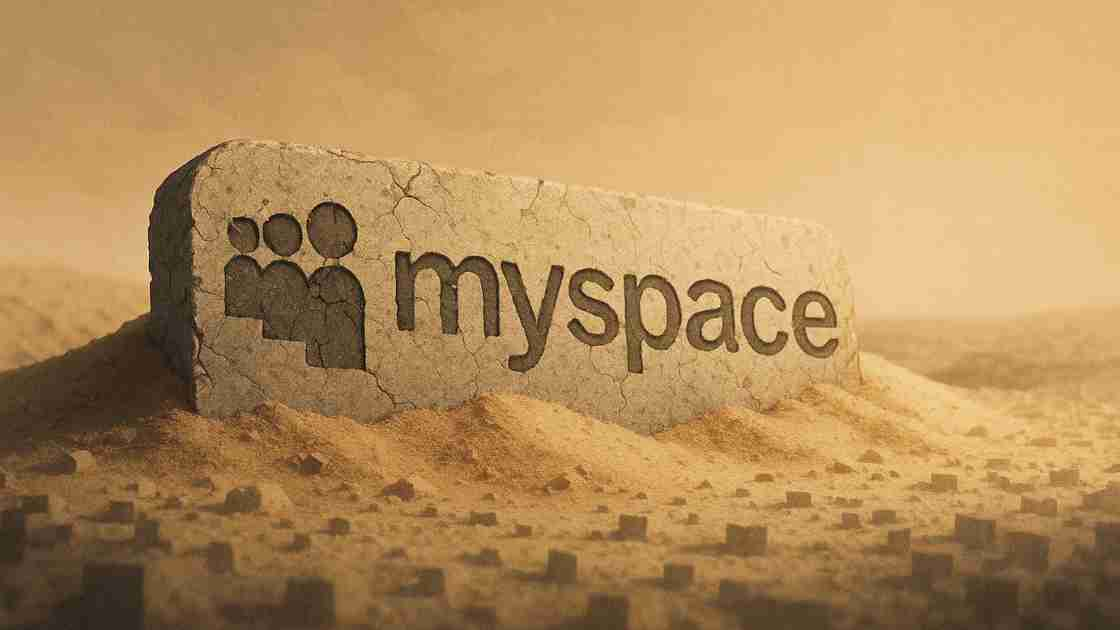
Ghosts of MySpace
The internet’s story is one of amazing revolutions that no one recognises until it’s too late. Once, Telnet ruled, a text-only frontier where each server was a separate world. Then Gopher arrived, turning the internet into a kind of universal filing cabinet, only to be swept aside when the World Wide Web made everything look like a magazine. In 2005, MySpace felt like the inevitable extension of the web and the beating heart of youth culture. Rupert Murdoch’s News Corporation paid half a billion dollars to own the future but sold it for spare change just six years later. Today, as the Murdochs join the pack circling TikTok’s US business, it’s worth asking if history is about to repeat.
The pattern that links TikTok’s uncertain future, the dawn of generative AI, and the ghosts of MySpace is the same: success always blinds the winners to what comes next. Each great platform is born from a shift it perfectly captures, only to be undone by the one it fails to see. To understand what may happen to today’s internet giants, it’s worth looking at how these paradigm changes unfold and how MySpace, once the web’s brightest star, lost everything by standing still.
TikTok stands at the same kind of crossroads that once confronted MySpace. In 2005, MySpace and Yahoo! reflected the web’s dominant mindset, one built around content and consumption. Pages were mosaics of media, advertising and personality, designed for visitors to linger within a curated space. It was a logical extension of the newspaper model that had defined the early internet, but the world was already shifting to a new paradigm where relationships and interaction mattered more than published content.
Facebook captured that shift perfectly, while MySpace was left trying to perfect the old one. Today, TikTok risks repeating that story. It has been the most influential platform of its generation, reinventing entertainment through its recommendation algorithm, but the internet is moving again, away from social connection, toward AI-generated content and autonomous agents. The temptation for its new US owners will be to double down on advertising, but as MySpace discovered, ubiquity built on a fading model can vanish overnight.
MySpace wasn’t the only internet property that missed the move. Yahoo!, once just as dominant, also failed to adapt to what became known as “Web 2.0”, an internet defined not by static pages but by relationships, participation and constant interaction.
Facebook and Google weren’t just new competitors; they were built on a different foundation entirely. Rather than publishing information for people to consume, they enabled people to navigate their connections to others. Rather than overload the home page, Google provided a clean interface to a wide range of dynamic content and encouraged the internet to organise around being found through search engine optimisation (SEO) and paid placement (AdWords).
The same warning applies to today’s AI companies. The trillions being poured into generative models could trigger collapses far greater than MySpace’s if the underlying paradigm shifts faster than expected. For now, chatbots and agentic commerce, systems that act or buy on our behalf, dominate the headlines, but these may prove to be only transitional phases. The next wave of AI could return to its data management roots before evolving into something entirely new. Like News Corp’s faith in MySpace, today’s confidence in the current AI model risks mistaking a momentary lead for permanence. The real danger lies not in being wrong, but in being right for a world that’s already gone.
The signs of another upheaval are already here. Every business that depends on search rankings, SEO, and AdWords is facing an existential threat as generative AI rewrites how people find information and make decisions. When search no longer guarantees discovery, the commercial foundations of the internet start to crack.
The advertising that once powered MySpace and Yahoo!, and still sustains TikTok and Google, is under pressure from a new economic logic. Money always speaks first. It is now demanding new answers including business models that can survive when algorithms, not audiences, decide what is seen. That pressure will drive the next paradigm shift and, in doing so, upend much of what is being built today.